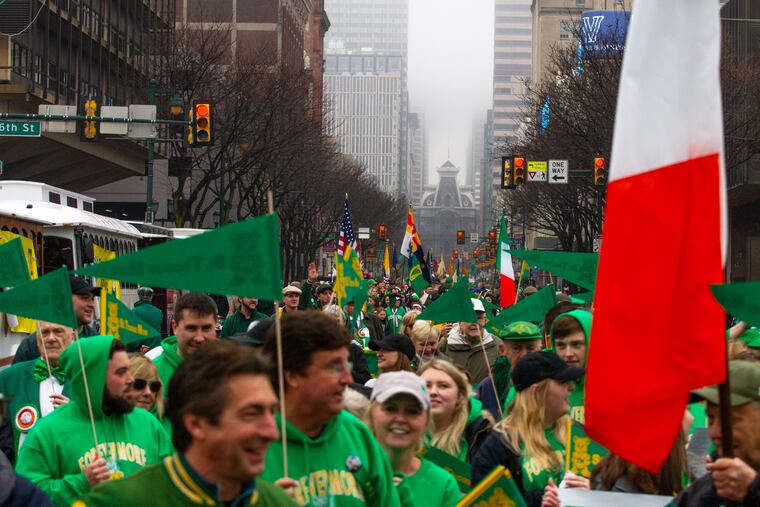Philly needs to make tough calls on coronavirus — canceling St. Patrick’s parade was the right one | Editorial
If Ireland and Boston can cancel their St. Patrick's Day parades for the benefit of the public’s health, so can Philly.

Editor’s note: This editorial originally called for Philadelphia’s St. Patrick’s Day parade to be canceled. When city officials announced its cancelation late on Tuesday night, the Editorial Board updated accordingly.
The Philadelphia Department of Public Health officially confirmed the first case of coronavirus in the city Tuesday afternoon.
In a news conference at City Hall, Health Commissioner Thomas Farley updated the city’s recommendations to include a warning against attending events with more than 5,000 participants — such as the upcoming St. Patrick Day’s Parade on Sunday. Farley and Managing Director Brian Abernathy said that they have not asked the organizers to cancel the event, but recommend that people watch it from home.
This may have been an attempt to navigate a fine line between maintaining calm and keeping people safe, but the action transmitted a mixed signal. Late last evening, the signal cleared, when the parade organizers announced they had canceled the event.
City Council President Darrell L. Clarke said earlier Tuesday that Council is ready to support the mayor’s effort to deal with coronavirus. But Council, too, has sent some mixed signals.
During last week’s meeting, Council passed a resolution introduced by Councilmember Allan Domb to authorize the Committee on Public Health and Human Services to hold hearings on the city’s preparedness to “respond to the inevitable arrival of coronavirus.” Now, it’s here. According to Committee Chair Cindy Bass, the coronavirus hearing is scheduled for April 6 — 26 days from now.
A person confirmed with the coronavirus today can be in isolation for the recommended 14 days, take a 10-day vacation, and still attend the hearing with a couple of days to spare.
Scheduling a prompt hearing is possible. When Councilmember David Oh introduced a bill to essentially ban supervised injection sites, it took the Committee on Public Health less than two weeks to hold a hearing.
Both City Council and the administration need to get on the same page and show a unified course of action.
Canceling the St. Patrick’s Day Parade was the right step. For a city with a large and deep-rooted Irish population, the parade is an institution. It is the second oldest in the country — marking 250 years this week. Michael J. Bradley Jr., the current grand marshal of the parade, told WHYY that the celebration can draw up to 100,000 spectators.
Ireland — which had 24 confirmed cases — and Boston — which had 10 cases in Suffolk County — had already canceled their parades for the benefit of the public’s health.
In 1918, in the midst of the global Spanish flu pandemic, nearly 200,000 packed Broad Street to view a parade to bolster support for U.S. troops fighting in World War I. At the time of the parade, there were no known cases in Philadelphia. Two days after, the city announced that Spanish flu hit, and every hospital bed in Philadelphia was full. Within a couple of weeks, more than 4,500 died.
Coronavirus is not the Spanish flu, and the health services in 1918 were not as advanced as today’s. But a respiratory virus is transmitted in a large crowd today — just like it was then.
The coronavirus poses a difficult challenge to city leaders: taking necessary precautions without inciting panic. Action does not equal panic. Canceling the parade was the right one.